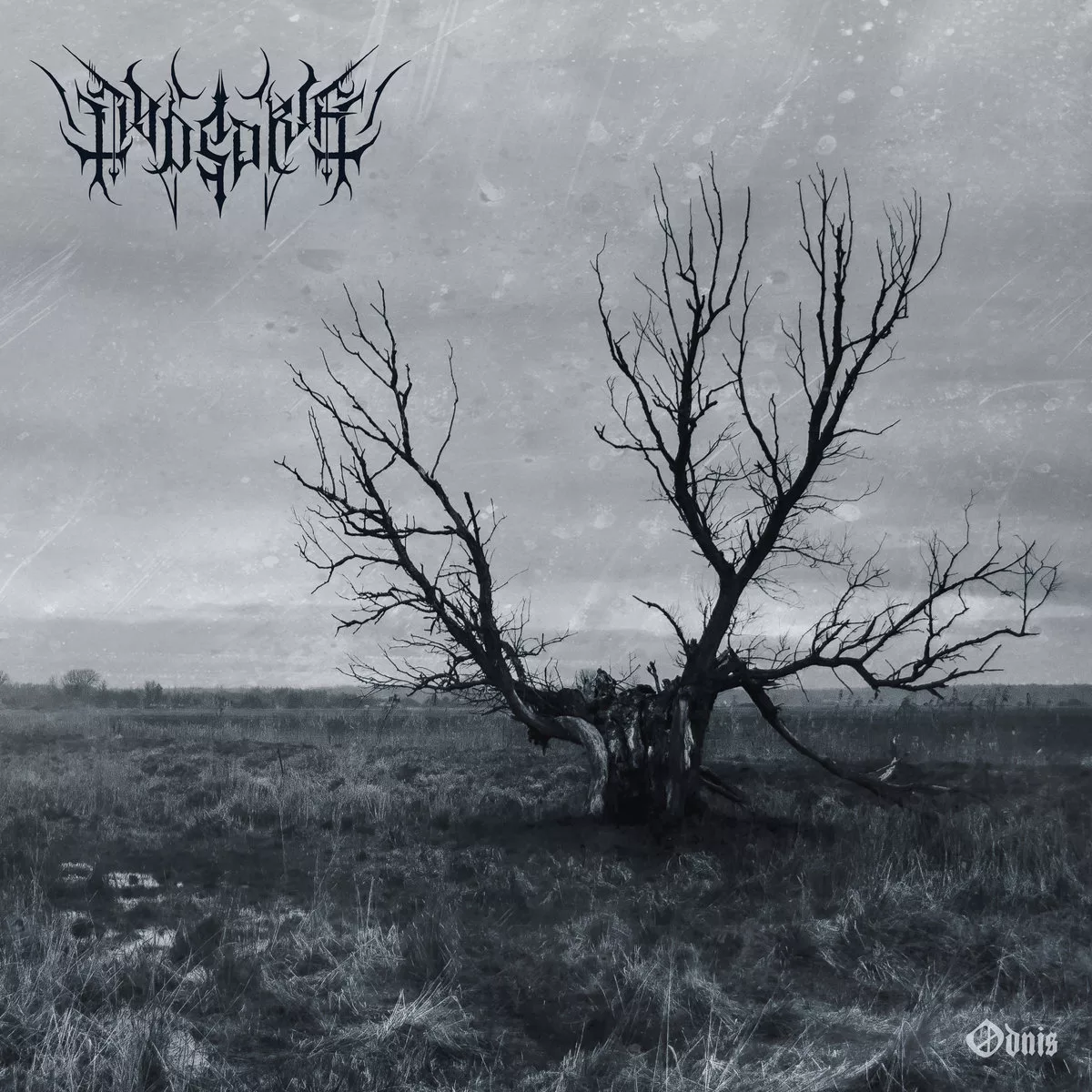Review: DØDSDRIFT – ØDNIS

“Ødnis” emerges like a frigid breath from the Baltic coast, a measured feat of atmospheric black metal that wields melody and melancholy as its primary armaments. Dödsdrift return with their sophomore offering not to reinvent the genre, but to reaffirm it through stark clarity and grim conviction. The rustling of tremolo guitars and the relentless crash of percussion coalesce into a winter-drenched ritual: harsh, intimate, unrelenting, frost-bitten. The way black metal has to be.
The album’s opening, “Fährde,” crashes in with drum-machine-like precision and piercing leads, casting a shadow of urgency that remains persistent. Across ten concise tracks, the black metal pulses with compact ferocity. There is elegance in brevity; each riff knows its purpose, each passage its place. Yet this restraint can become a double-edged blade. While the focused execution delivers impact, it leaves little room for expansive departures or emotive surprise, turning the album into a well-honed march rather than an emotional journey.
Where the record transcends monotony is in its ability to craft melancholic hooks that linger. “Ruß” stands out with spectral melodies coiling through cessation of rhythms. “Heimkehr” and “Adern des Abgrunds” tip toward hypnotic beauty, bending black metal into elegiac form. These brief and luminous moments lift the album above mere aesthetic and into visceral terrain.
The production reinforces this identity. Guitars cut with frost-sharp clarity, yet ambient hinterlands breathe beneath the surface. The vocals are guttural yet articulate, more bark than roar, cutting through skin and soul, yet remaining human. The mix avoids polish; instead it preserves atmosphere, and sometimes that means fragility remains exposed. This choice suits the record’s ethos, though listeners seeking bombast may find fade between texture and force uneven.
The german lyrics deepen the album’s cold intimacy. Even to non-German speakers, the harsh consonants and guttural vowels carry weight. The band took it’s time with writing the lyrics, so each word feels carved, not sung. It becomes a communication of space and emotion, not meaning. T
Yet, for all its strengths, “Ødnis” seldom deviates from its course. The mid-tempo drive becomes familiar, its frostbitten signature risked flattening peaks across repeated listens. A few tracks might have benefited from broader dynamic lighting or pacing variance.
Still, the album succeeds where it commits. It does not aim to challenge its listener with chaos or complexity. Instead, it assaults them with clarity of atmosphere and purpose. It embodies stoic insistence, like a wind-lashed figure upon a lonely shore.